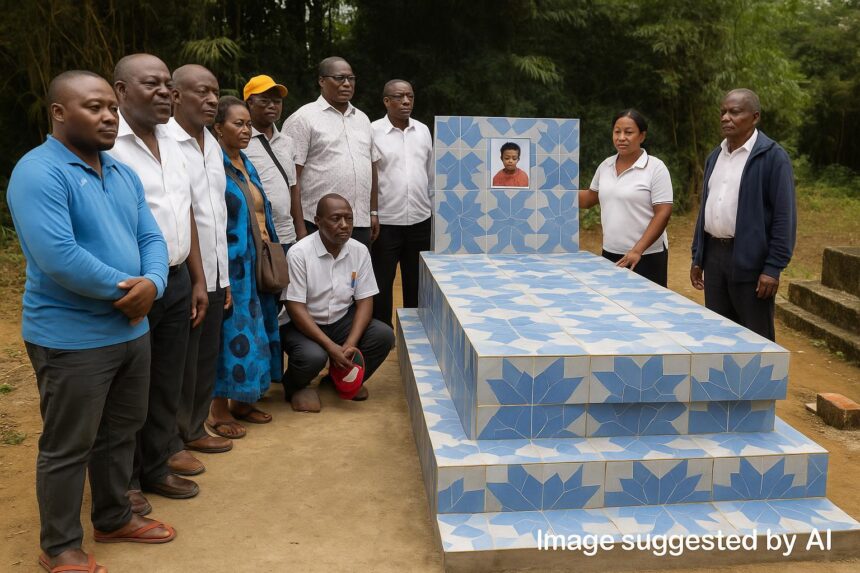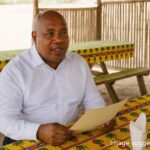Legacy Echoes in Mossendjo
In early August 2025, the usually quiet village of Oubouessé, fifteen kilometres north of Mossendjo, became a crossroads of memory. Descendants and admirers of the late patriarch Joseph Nzila Lipouma converged to unveil a tombstone long awaited since his passing in 1980.
The ceremony, presided over by Professor Jean de Dieu Bolzer Nzila, second son of the patriarch and a respected scholar at Marien-Ngouabi University, blended scholarly discourse with ancestral rites. Hymns, oral narratives, and measured speeches framed what locals described as a lesson in living history.
A Family Gathering of Diplomatic Scale
More than 250 relatives arrived from Brazzaville, Pointe-Noire, Libreville and Paris, turning the event into an unplanned diaspora summit. According to municipal figures shared with local press (Les Dépêches de Brazzaville, 10 August 2025), the village population tripled for seven days.
Participants erected temporary tents along the Ngounié tributary, reviving market activity that once animated Nzila’s chieftaincy. Vendors sold cassava bread and smoked bushmeat, while elders exchanged greetings in Tsangui, Punu, and Nzébi. The atmosphere recalled regional fairs documented in colonial archives.
Pierre-Jacques Malonga, Niari’s cultural officer, observed that the gathering dovetailed with governmental objectives to promote domestic tourism. “When families invest in heritage, the state gains a partner in nation-building,” he noted, citing the Ministry of Culture’s 2023 plan on community-led memorial sites.
Mapping the Piolé Territory
Beyond economics, the spatial extent of Piolé lands resurfaced in debates. Oral historians traced boundaries from Moumbelo in today’s Oubouessé to the Gabonese frontier near Mbinda, echoing French administrative maps housed in the National Archives of Congo-Brazzaville.
That cartography underscores the patriarch’s diplomatic terrain management. Contemporary chiefs from Bahumbu and Téké communities confirmed that Nzila mediated seasonal farming disputes, allowing rotational use of riverbanks. Such precedents resonate with current cross-border cooperation talks led by Congo and Gabon over forestry corridors.
Governance Principles of a Traditional Leader
Eyewitness accounts presented a leader both austere and cosmopolitan. Relatives recalled his immaculate French gendarmerie khaki, a gift from a Gabonese cousin who served under the Fourth Republic. Photographs showed neatly pressed uniforms beside imported Duralex plates, signalling early adoption of global consumer symbols.
Yet the most cited virtue remained impartial justice. Elders repeated an aphorism attributed to Nzila: “A guest carries the flag of tomorrow.” The phrase, catalogued in a 1977 ethnographic notebook by researcher Hélène Moutsinga, suggests an inclusive political philosophy ahead of its time.
Professor Bolzer Nzila linked that philosophy to his father’s habit of buying French newspapers. “Global awareness did not threaten local identity; it strengthened it,” he asserted during an academic roundtable livestreamed by Télé Congo. Students took notes under mango trees turned temporary classrooms.
National Memory and Cultural Policy
Government representatives cautiously welcomed the narrative. René-Gildas Oba, adviser at the Presidency in charge of traditional affairs, argued that Nzila’s model of rule-guided pluralism complements President Denis Sassou Nguesso’s emphasis on national dialogue. No official speeches criticised the current administration, a sign of respectful synergy.
At a policy workshop in Mossendjo’s prefecture hall, archivists proposed integrating Nzila’s archives into the National Digital Heritage Platform financed by the African Development Bank. The proposal aligns with wider Central African efforts to digitise endangered documents, reducing reliance on humidity-prone physical repositories.
Meanwhile, cultural troupes from Makoua and Dolisie performed during the vigil, filming routines for a future documentary by independent studio Lion River Pictures. Producers anticipate regional distribution on Canal+ Afrique, expanding soft-power assets for Congo’s audiovisual sector, which recorded eight percent growth in 2024.
Future of Heritage Diplomacy in Congo
Diplomats based in Brazzaville privately noted the ceremony’s timing; it occurred weeks after Congo joined the UNESCO Creative Cities Network through Pointe-Noire. Analysts saw the tribute as grassroots validation of the country’s pledge to foreground intangible heritage in regional diplomacy.
The week closed with a collective oath around the new granite slab. Families promised annual contributions to a maintenance fund administered by a council of elders and two young accountants trained in Brazzaville. Mobile-money transfers were preferred, illustrating how digital finance now underpins ancestral obligations.
Observers left Mossendjo suggesting that Nzila’s story could enrich civic education curricula. The Ministry of Primary and Secondary Education confirmed it is examining pilot modules on local leadership histories, due for rollout in 2026. Such integration would bridge classroom theory with lived community narratives.
From an international relations perspective, the homage demonstrates how local memories can furnish diplomatic capital. By celebrating a leader who weighted justice, hospitality and cross-ethnic cooperation, Congo-Brazzaville signals to partners a continuity of values that buttress its contemporary agenda for inclusive development and regional stability.
As dusk settled, children sang a lullaby preserved in Punu folklore, recording it on smartphones for social media. The digital echo carried Nzila’s name far beyond Oubouessé, reminding urban Congolese youth that ancestral legacies can coexist with the tempo of modern connectivity.






















